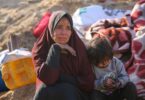Hashim Kamal
The Islamic State of Khorasan Province (ISKP) is not a new actor in Afghanistan. Over the years it has popped up as an enemy that has destabilized the country to a large extent. It has proved to be one of the most belligerent militant organization in Afghanistan. ISKP in Afghanistan is most grounded in the deliberately significant areas of Nangarhar and Kunar. Even without large swaths of locality under its control it still holds the capacity to lead spectacular assaults with close to exemption in the Afghan capital Kabul. Despite of the challenges from both Taliban and US ISKP has proven remarkably resilient and retains a robust cadre of committed fighters dispersed throughout Afghanistan. In the past US has committed a large number of airstrikes as well in 2017 it has also launched an attack with the largest non- nuclear bombs on a tunnel complex in Nangarhar’s Achin District in order to tackle this problem of growth of ISKP in Afghanistan which proved to be a dead-stone.
Due to the recent developments in Afghanistan as the last American troops have withdrawn on August 31,2021 and the Taliban taking full control of the region has once again resulted in blowing a spark for the resurgence of ISKP in the region. The prime scenario which shows that ISKP is back in business in the region is the recent bombings at Kabul Airport on August 26 which resulted in killing 72 innocent Afghans and also the 13 members of the US military forces. The responsibility of these brutal attacks have been claimed by the Afghanistan affiliate of ISIL (ISIS). ISKP has been terrorizing Afghans since 2015 and its is expected that it would continue to do so as the US troops have withdrawn now. The group keeps a consistent functional beat and likely holds the capacity to lead assaults in Kabul and other metropolitan communities.
The ISKP is looking forward to confront Taliban as America has withdrawn from the region. ISKP can still confront the legitimacy of Taliban though they are only 2000 in numbers as compared to Taliban which are estimated to be 60,000 with its forces been dispersed throughout Afghanistan. This means both Taliban and ISKP could be on the verge of a new era of strategic and tactical tug-of-war which can once again prove disastrous for the maintenance of peace in Afghanistan.
Another key aspect which can lead to the resurgence of ISKP in the region is that it can get help from some unusual sources—the Haqqani Network which maintains ties with both Taliban and IS rival Al-Qaeda. This affiliation of ISKP with Haqqani Network can provide ISKP “key expertise and access to networks” as it sought to recuperate from the losses in its previous Afghan strongholds. The ISKP also has some major differences with the Taliban incriminating them of abandoning Jihad and the battlefield in favor of the negotiated peace talks which took place in Doha, Qatar. ISKP and Taliban have frequently fought over the control of territory or because of some political or other differences. It has also been assumed that upon taking power the Taliban have also executed imprisoned former ISKP leader in August 2021. This gives rise to certain speculations that the new Taliban government can now face the security challenge from ISKP if the Taliban leaders continue to compromise on certain issues as they begin governing the country.
In short terms ISKP poses a threat to the Afghan civilians and the abecedarian Taliban government in Afghanistan. The ISKP will now look to take ascendancy from the political instability and the lack of counterterrorism efforts after the US withdrawal in order to challenge the Taliban control. ISKP will probably proceed to plan and lead assaults just as extend recruitment endeavors, yet its success will rely upon a few components, remembering the Taliban’s speed and accomplishment for setting up an administration, neighborhood and territorial counterterrorism endeavors, and ISKP’s capacity to deal with its picture among a populace that it has generally battled to recruit.
The attacks on Kabul airport would once again lead towards the escalation of conflicts between ISKP and its rival Taliban. The ISKP has a firm belief that the Taliban would not be able to their promises and ensure the safety and security of the Afghan citizens especially minorities and women under its rule considering there previous tenure. On the other hand the US president Joe Biden has warned the terrorist group ISKP that it will have to pay the “ultimate price” for this act and that we are not done with you yet. US has committed drone attacks on ISKP as retaliation of the Kabul airport attacks. The Taliban has condemned these attacks on ISKP as they consider it as an attack on Afghan territory. The US president has confirmed that these attacks are not the last and that they would continue to do so against those involved in these heinous attacks.
Following the withdrawal of the US and NATO forces from Afghanistan the manner in which the new government of Taliban will approach this transitional period and the extent to which they will persue an intra-Afghan peace process will determine the success of ISKP’s strategy in the region. The extent to which ISKP can refocus without Western counterterrorism endeavors will likewise be affected by how well the Taliban and other local governments, including Pakistan and China, execute extra counterterrorism crusades focusing on ISKP warriors. In case ISKP can’t extend its nearby base and particularly if the Taliban and other provincial governments put forth a deliberate attempt to limit its unfamiliar recruitment endeavors then ISKP might be compelled in its movement and development. Now, it would be very interesting to see that what Taliban, US and other geostrategic players have in store for us as ISKP’s resurgence is happening once again in Afghanistan but only the time will tell that what is going to happen in near future.
WRITER’S PROFILE:
I am Hashim Kamal. Student of Bachelor’s in International Relations at National Defence University Islamabad having profound interest in regional, ethnic and global conflicts, terrorism etc.






